 Ralitza Petrova's Godless is a grim redemption story, a film steeped heavily in sorrow, isolation, pain, and decay. Set in post-communist, Bulgaria, Godless follows an unlikely protagonist in Gana, a nurse who spends her days caring for bed-ridden elderly patients. While her profession is one of empathy and selflessness, Gana herself couldn't be more deceptive and cruel, running a scam in which she steals her patients identification cards and sells them to corrupt police officers who make a handsome profit by selling them to shell corporations in what amounts to a heinous act of fraud. The money she makes fuels her morphine addiction, her only way of escaping her hardened existence, one of passionless solitude. In a place of such darkness and misery, Godless presents a story of hope and redemption, a film which evokes the notion that it's never too late to save one's sense of morality through personal empowerment. Gana is a character who is beaten down by the cold, harsh world thst surrounds her, a victim of her environment who has never experienced any form of empathy, love, or compassion. Hardened and shaped into a character who is as cold as the Bulgarian winter, Gana has never even experienced any form of kindness, yet all that changes through her relationship with Yoan, an elderly man and ex-choir insrructor who survived the communist regime. Through their relationship Gana begins to understand the error of her ways, questioning her hardened existence, and eventually rejecting the corruption and vile existence which she once herself made her bed in. Gana is a character who has experienced a lot, yet it's through the relationship with Yoan, the old elderly man, that she learns the importance of personal empowerment, eventually growing to not just accept her sad life, quit feeling sorry for herself, and find strength in her convictions. Ralitza Petrova's Godless is a understated, harrowing experience, a film that paints a dark and depressing portrait of modern day Bulgaria where corruption is far-sweeping and hope and empathy are scarce. Juxtaposing the picturesque Snow covered mountainscapes with the decaying man-made structures, Godless evokes a sense of hopelessness throughout it's narrative, visual evoking the cold emotional state of its main protagonist. While some viewers will surely find Godless too tepid in pace, the film's slow-burning nature feels perfect for this story, lulling the viewer to sleep in it's hopelessness, only slowly revealing the light that still exists among the darkness. Featuring a phenomenal, understated performance, Ralitza Petrova's Godless is a stunning debut film, a harrowing portrait of the importance of personal strength and redemption.
0 Comments
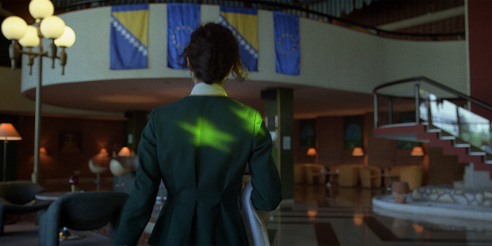 Danis Tanovic's Death in Sarajevo is a politically-charged experience, an angry and introspective film which uses its ensemble-fueled narrative as a profound examination on the current state of Europe. Set in the hallways and spaces of a lavish hotel in Sarajevo, Danis Tanovic's film details a business in disarray, with the Hotel's manager, Omeer, desperately trying to keep the place in operation, stuck between the bank he owes money too and an impending union strike by his employees. He is stuck between a rock and a hard place while simultaneously attempting to prepare for the arrival of an important EU official who has has to give a speech on the anniversary of the assassination of Archduke Franz Ferdinand, an attack that triggered World War. Danis Tanovic's Death in Sarajevo provides a master class in form and function, a film that masterfully uses it's narrative to deliver a powerful and haunting portrait of the failures of the European Union. Omeer is a character who is simply trying to keep the business afloat, a man who comes to symbolize the prime ministers throughout the European Union, completely at the mercy of the banks, having little control when it comes to helping his employees. The various employees who wish to strike in an effort to make things better for themselves represent the European citizens throughout the European Union, people who are trapped under the neoliberalism/keynesian economics that restrict both their cultural and economic independence. Danis Tanovic's film is not one that pretends to have the all the answers to this complex situation , being mature in it's deconstruction of the current state of the European Union, recognizing the need for more independence and freedom from bureaucracy and neoliberalism, while still recognizing the dangers associated with celebrating nationalism, something which more often then not leads to fascism. Tanovic's film recognises the importance of accountability on both ends of this complicated mess, recognizing that there is no easy solution while simultaneously being angry about the current model of the European Union on that restricts both economic and personal freedom, while simultaneously pretending that unique cultures that make Europe so special and unique don't matter. Focusing on how this situation effects his homeland, Tanovic's film draws haunting parallels between the occupation of Sarajevo and the restrictive oppressive policies of the EU, recognizing that violence is never the solution yet fearful of what may come if nothing changes. Perhaps the final frame of the film perfectly summarizes Tanovic's fears, with the hotel manager wandering through the halls of his hotel which has erupted in total chaos, a man who has lost total control over his employees and his business. Extremely well crafted and meticulously in it's deconstruction of the current state of Europe, Danis Tanovic's Death In Sarajevo is a chilling, mature, and though-provoking allegorical tale which is angry yet fearful of what may come if nothing changes. 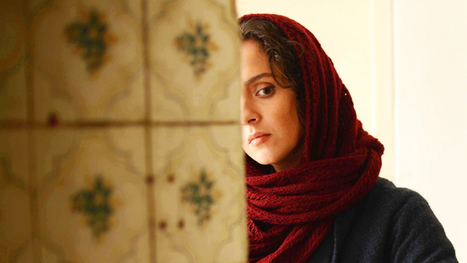 Asghar Farhadi's The Salesman is another masterclass in narrative and story from the celebrated Iranian filmmaker, a film full of mystery, intrigue, and understated emotion, deconstructing the underlying and far reaching effect emotional trauma can have on the psyche, being a story about censorship, revenge, and ultimately forgiveness. Centered around Ranaa and Emad, a married couple who has just been displaced from their home due to extensive structural damage, The Salesman paints an intricate study of their relationship, one that is pushed to the edge of ruin after a break-in at their new apartment leaves them reeling. The actual events of surrounding what exactly happened that night are left ambiguous, but the way Ranaa struggles to cope indicates sinister happenings, with The Salesman deconstructing the nature of trauma, one which leaves this woman in a borderline comatose state, unable to express the pain of her situation due to fear of shame. Juxtaposing the couples personal lives with the play they are both in, Death of A Salesman, Farhadi's film Is at least in part a commentary on the far reaching nature of this conservative culture and censorship, detailing how Ranaa herself is unable to express herself due to the shame associated with this presumably sexually-charged attack. We see a woman who attempts to quietly justify this heinous act, with her own victimhood being secondary in nature to her irresponsibly in leaving the door slightly open. Unwilling to go to the police, wishing to bottle up her trauma inside, The Salesman depicts a culture in which internalization is a better option than the shame which will occur. The effect the trauma has on this woman is visceral and heartfelt, detailing a character who struggles to even be in the same environment in which the attack took place. It's in Emad's inability to understand his wife's wishes thst causes strife among their relationship, setting him on a path of vengeance which ultimately leads to no clear form of redemption. Emad' pursuit of the man responsible is as much for him as it's for his wife, and it's only when he begins to listen to his wife's wishes that he truly recognizes the misguided nature of his revenge fueled justice. Asghar Farhadi's The Salesman is a film of many layers, a relationship drama that is part thriller, part redemptive, and part commentary of the culture these characters find themselves in, being another complex and intricate story by the celebrated filmmaker thst is full of many layers. 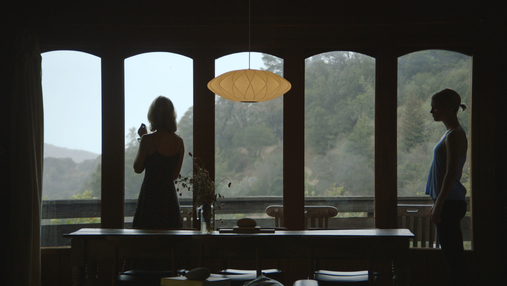 Sophia Takal's Always Shine is a psychological horror film that rejects the preconceived sensitivity and fragility associated with femininity, an exploration of the crushing effect such societal notions can have on the female psyche, delivering an extremely well-crafted and haunting experience. Always Shine is centered around best friends Anna and Beth, who are taking a weekend trip to Big Sur, hopeful to re-establish their close friendship that has been somewhat shattered over the past few years due to competition, resentment, and jealousy, related to the fact that they are both actors trying to live out their dreams under the sunny skies of Southern California. While Anne has had some success, often playing the damsel in distress, Beth has really struggled to find her footing in this unforgiving industry, an individual who simply doesn't have the right look and personality to play the same type of roles. Always Shine has a great sense of brooding unease from start to finish, a film with strong characterizations where the subtext and performances say more about these character's flawed relationship than any of the spoken dialogue. Beth is a character who has a brooding sense of resentment and vulnerability, an individual who is haunted by her failures as an actress. She has an aggressive personality, full of vitality and flamboyancy, epitomizing the non-lady like features due to her more in-your-face personality, one which leads her to struggle not only professionally but also socially, when it comes to finding a man who cares about her. As the two character's reconnect there is a sense of confrontational energy from Anna, a character who seems to be slowly unraveling, with the pressure of failure mounting inside of her, unable to stop comparing herself to her more successful friend. Beth on the otherhand is a character who fits more into the mold of not only Hollywood, but societies preconceived notions of femininity, a more fragile, innocent personality who intentionally or not is far more passive, a quality that attracts more attention not only from casting directors but also men. This contrast between these two characters leads to a confrontation which I won't detail in this review, but lets just say the film becomes a powerful study of fragility that is both deliciously perverse and stunningly tragic. One of my favorite sequences of the entire film is when the two friends find themselves at a bar in Big Sur. An older gentleman shows interest in the two young ladies, but it quickly becomes apparent that he finds Anna's personality, one that is aggressive and inquistiive in nature, too off-putting, showing much more interest in Beth's quiet, fragile persona. This is just another scene outside of the acting world that fuels Anna's resentment towards her friend, a sequence that features one of the most powerful compositions of the entire film, a devastating shot that fixates on Anna, with Beth and the Man being seen in the reflection of the window, evoking another painful moment for Anna that only exacerbates the resentment she already has for her friend. A psychological thriller which in part draws heavily from Bergman's persona, Sophia Takal's Always Shine is a supremely well-crafted thriller exploring the contradictions and confining characteristics of femininity, detailing the perverse and damaging effect they can have on the psyche of the individual. 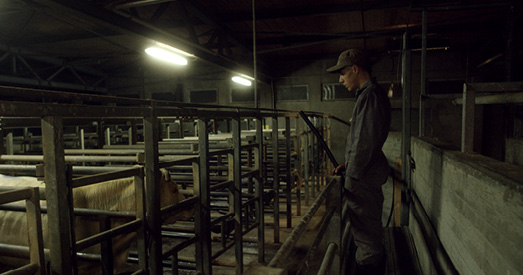 Maud Alpi's Still Life is a existential and introspective examination of the nature of life itself, a confrontational yet meditative study of mankind's social-based construct of what life we as a species place value on and which we do not. A pseudo-documentary, Still Life is a sensitive and observational portrait of a slaughterhouse, viewed primarily through the lens of a young employee who is emotionally effected by the profession he himself is a part of. Featuring a voyeuristic lens and an observant eye, Still Life is excruciatingly intimate, intricately exploring the close confines of the slaughter house, with the clanging steel gates, dark hallways, and dimly lit spaces creating an expressionistic nightmare that is beautifully disturbing, one where death lurks around every corner. Beautifully composed, Still Life paints a convincing portrait of the horrors of our mass-industrialized meat industry, a film which attempts to routinely capture the sense of consciousness that exists in these various animals through it's meditative lens. The cinematography routinely fixates on the eyes of these animals, a repetitive decision, confronting the viewer in a way that attempts to establish the emotion of these animals and humanize them for the audience. This young employee that is detailed throughout the narrative is the closest thing to a central protagonist, a man whose close connection with his dog provides a beautifully juxtaposition between our social construct of what life matters and what life doesn't, with the freedoms and tenderness in which the dog experiences on a daily basies being a sharp contrast with the various animals we routinely view primarily in the context of consumption. The few scenes that take place outside of the confines of the slaughterhouse are bright, vivid and alive, with Still Life having a truly impressive understanding of space and visual acumen, contrasting the freedom and open spaces of the outside world with the restrictive, dimly lit confines of the slaughterhouse. A confrontational experience that is sure to make some viewers question their affinity of meat consumption, Maud Alpi's Still Life is a film that is bound to stay with the viewer long after its conclusion, a visually expressive piece of filmmaking that challenges our cultural understanding of life itself, questions whether all aspects of life deserve the same respect and importance we place on human life. 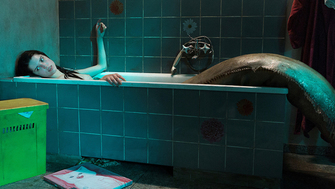 A horror-musical hybrid which plays in a world of utter-absurdity, Agnieszka Smoczynska' The Lure is a one-of-a-kind experience, a film that shows very little interest in cohesive storytelling, focusing instead on creating a visceral, fantasy-horror experience. The narrative itself can be borderline incohorent at times, with Agnieszka Smoczynka playing with form and aesthetic in lavish and interesting ways, focusing on two aquatic sirens in Silver and Golden, and their experiences on land after meeting a family of musicians who work at some type absurdest cabaret. The sisters vow not to eat any humans, but when Silver becomes romantically entangled with Mietek, a bassist at the cabaret, Golden begins to develop a bloodlust for human flesh, becoming fearful and jealous of her sister's newfound relationship, one which could indirectly shatter Golden's shared dream with her sister of eventually swimming to America. The Lure is a film which completely blurs the line between reality and fantasy, playing in a world full of fantastical elements, where these two fantastical creatures attempt to adopt a life among humanity. While Silver assimilates into the culture quite quickly, Golden struggles to find a place for herself away from the sea, with The Lure seeming to develop itself as some form a allegorical tale about immigration and integration, featuring a few heartfelt moments of geniune clarity, empahty, and thematic vision amidst the film's absurdest and playful tone. Tonally, The Lure is one of a kind, a film full of life and energy, rarely playing in the constraints of reality, featuring a rich and colorful aesthetic that is both vibrant and transfixing from start to finish. The absurdest nature of the story itself does begin to wear out its welcome due to in-cohesiveness from a narrative perspective, but the film's overall allegorical thematics keep the film intriguing from start to finish, as does the geniune empathy we begin to feel for these characters, particularly Golden, who herself lashes out violently due to her inability to have the same shared experience as her sister. Those going into The Lure expecting a traditional horror film full of suspense and tension will probably be disappointed with The Lure, as this is a film that plays much more in the world of fantasy, delivering an absurdest, fantastical tale about two young girls who are essentially trying to assimilate themselves into the culture of a place in which they know very little about. 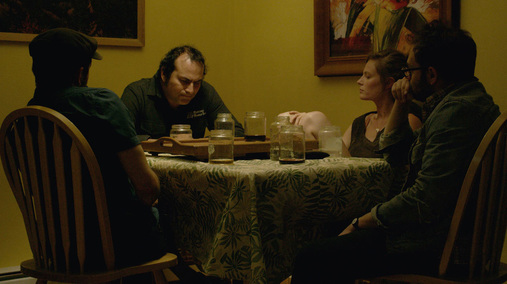 Nate Silver & Mike Ott's Actor Martinez seamlessly blurs the lines between fiction and non-fiction, providing an in-depth look at full-time computer repairman, Arthur Martinez, a man who dreams of fame and fortune, hiring the filmmakers to create a feature film with him as the lead about his life. A meta-experience, Actor Martinez is a film that taps into the complexities of the creative process, detailing both the manipulative nature of direction as an art-form, and the importance of honesty and truth, finding both Mike Ott & Nate Silver growing seemingly frustrated by their main subject, a man who continually hides behind a mask, unwilling to reveal his himself to the filmmakers. Actor Martinez is almost like an in-depth therapy session, a viscerally uncomfortable experience which captures the importance of honesty when it comes to creative vision. Arthur is a wild card, a character who himself is reluctant to show himself to the filmmakers, content with living in a delusional state of denial, particularly related to his past relationship with his ex-wife. By the end of the film Arthur is a character who is forced to face the reality of the world in which he inhabits, coming to the realization that he simply isn't the actor or creative type he wishes to be, showing semblance of truth and emotion in the very final scene of the film where he laments about the need to know that other people also hurt. It's the most honest moment in the entire film from this man, a character who is combative about being honest about his past, emotionally cut-off from the filmmakers up until the very last sequence where he bares his soul, revealing the underlying sadness which is documented beautifully with a long lasting static composition which elicits the stillness and coldness of this moment. Actor Martinez deconstructs the creative process in such a singular way, an honest film that makes no bones about this being a flawed experiment, never exploiting its subject but being honest about the manipulative aspects of direction, one in which personal vision comes first. Tranfixing, difficult to experience, and honest, Nate Silver and Mike Ott's Actor Martinez blurs the lines between reality and fantasy seamlessly, delivering one of the most singular visions of the creative process ever made, a film that is honest, uncomfortable, and humbling about the importance of emotional truth when it comes to creating cinema that works. 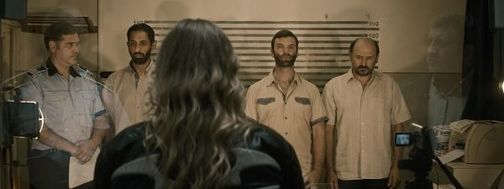 Cristian Mungiu's Graduation is a quietly tragic tale of paternity, detailing the extreme lengths one man goes through for the sake of his daughter's perceived well-being. Romeo Aldea is a physician living in the small mountain town in Romania, a father, who has raised his daughter Eliza with the intention of her leaving this country to study abroad in the UK. Eliza has won a scholarship to study psychology, leaving her father very pound, with the last step in the process being that she passes her final exams, a formality for such a gifted student. On the day before her first exam, tragedy strikes, with Eliza being sexually assaulted, a heinous act which could have serious repercussions for her entire future. With Eliza facing much emotional strife and trauma that has left her somewhat despondent, Romeo makes a decision to protect his daughter at all costs, one which finds the man jeopardizing his own morality, going against the vary principles which he taught his daughter. Cristian Mungiu's Graduation is a story about one father's inability to let go, detailing a man in Romeo who is unable to view his daughter as a character with her own free will. Mungui paints a portrait of a man who still sees his daughter as needing his guidance, unable to recognize that she is old enough to make her own decisions. Romeo goes to great lengths to protect his daughter's future, even jeopardizing his own in the process, committing sacrifice after sacrifice for her, yet he never even questions what his daughter wants, wrapped up in protecting her from what he perceives could destroy her future. Romeo is a character who is so headstrong about his daughter making something for herself outside of Romania that he never even grants her the independence to make her own decision, sacrificing not only his morals to protect her but also his daughters at times, convincing her that sometimes one has to play against the rules to succeed. As the film progresses, Romeo's world begins to crumble around him, with his desire to help is daughter clouding his own judgement, reaching the point where he finds himself rejected by those he loves in the process. He is so wrapped up in helping his daughter that he never even fathoms asking her what she herself wants, with his deteriorating morality eventually leading to a tragic conclusion. A tragic tale of the lengths a man is willing to go for his daughter, Cristian Mungiu's Graduation is a greek tragedy, detailing a man who ends up sacrificing his entire future for his daughter, a situation which could have been avoided if he showed more willingness to accept her independence. 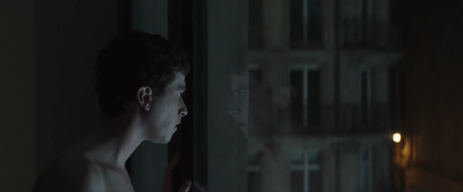 Bertrand Bonello's Nocturama is a profound piece of filmmaking, a deconstruction of radicalization that is both pointed yet beguiling, detailing a group of young Parisians, tired of the society they're living in, as they carry out a intricate terrorist attack on Paris. Oscillating between the intricate execution and the detailed planning of their act of terrorism, Bertrand Bonello's Nocturama is bristling with tension and intrigue, offering only subtle glimpses into the motives of these characters, who seemingly have grown tired of a system in which they feel their liberties and sense of personal freedom has been restricted. Nocturama is sure to trigger a host of fascinating conversations centered around radicalization, revolution, and terrorism, and while the film is certainly up to interpretation their is no denying the film's deconstruction of the naivety of these characters who truly believe they are about to change the world. Much of the film takes place in the aftermath of the bombings, detailing the slowly unraveling psyche of this group of young radicals, many of which soon begin to realize the true toll of their political-fueled actions. In a sense, Nocturama is in part a story about the perils of blind faith, and the lack of critical, independent thought, as many of these characters begin to see their romanticized ideals of political revolution dissolving before their eyes, with a sense of regret slowly seeping into the psyche of some of these characters who envisioned themselves as revolutionaries only to discover how little change they have actually made in the world. The disconnect between the quiet, tranquility of the department store they are held up in, with the chaos outside feels like a symbolic representation of their misguided expectations, with their perceptions of revolution being met with a quiet thud by the reality the situation in which they find themselves in, the bombings being essentially meaningless to their cause of triggering a cultural revolution. Many of the characters themselves, including the leader himself, find themselves confronted with the true gravitas of the situation they find themselves now in, beginning to recognized the true scope of their actions, and how little impact it has brought to the masses. Juxtaposing vapid pop music and consumerism with the news footage of the carnage on the Parisian streets is enigmatic and intriguing, as if to suggest these types of actions are rooted in a juvenile understanding of revolution, one in which these young radicals simply wish to place their stamp on the world, unable to truly create change. Though these characters' committed a heinous acts, Nocturama manages to make the viewer feel sorry for these characters, viewing them as almost tragic, with their actions intent on changing the world, only to find themselves slaughtered one-by-one by the Police's special unit which eventually finds them. Nearly every aspect of Nocturama is up for interpretation, but in a sense the film seems to suggest that bloodshed itself will always result in more bloodshed, with the film being a rather powerful portrait of the current state of Europe, one in which blood flows while change itself doesn't feel any less closer to reality. 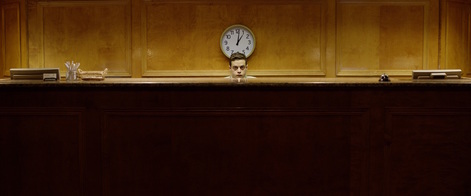 Stylish, enigmatic, and singular in its vision, Sarah Adina Smith's Buster's Mal Heart is a film which effectively manipulates the mind of the audience with its challenging structure, delivering a film that is hit-or-miss when it comes to establishing its intentions, but endlessly intriguing due to its creative vision. Buster's Mal Heart opens documenting a man on the run from authorities, a grizzled, bearded man who survives the winter by breaking into people's empty vacation homes in the beautiful, secluded mountainside. Trapped in a cave and surrounded by the authorities, the man reflects on his past, having been a husband, and father, working night shifts as a hotel concierge to provide for his family. Living with his mother-and-law, who frustrates him on a daily basis, Buster is trapped between his mundane night job and the frustrations on the home front, wishing to get away to the secluded mountains where he believes he and his family would be much happier. His wife rejects the concept, unable to fathom how they could possible make that work, a novel concept to her but one that steeped in complete fantasy by her husband who is simply frustrated by his job as a night concierge. Manipulating narrative structure and intentionally making it hard for the audience to decipher between reality and fantasy, Buster's Mal Heart uses a science fiction style narrative to deconstruct grief and existential ideas, revealing a man who has abandoned society and retreated to a more primal concept of living after tragedy strikes. While much of Buster's Mal Heart feels up to interpretation, the film's various flashback sequences detail a man who has simply been worn down by the daily grind, tired of the numbing effects of consumerism that have stripped him of his independence and inability to be with his family. Using science fiction elements to keep the viewer guessing from start to finish, Sarah Adina Smith's Buster's Mal Heart slowly reveals itself as a singular vision of grief and acceptance, detailing a man who has escaped modern society as a coping mechanism to deal with his emotional pain associated with tragedy The film never confirms nor denies nearly anything throughout its running time, with Buster's perceived reality being filled with elements which are routinely regulated to fantasy or science fiction films, which makes the viewer question what is going on from start to finish. From start to finish, the viewer struggles to discern reality from fantasy, with the viewer being completely in the psyche of a character whose own mental stability is very much a question mark. Don't read anymore if you don't want me to spoil anything for you, but personally, I think all the fantastical elements of Buster's Mal Heart from the inversion, to the two versions of himself, one lost at sea, one in the mountains, are all meant as symbolic representations of his introspection, a man who is lost in a large, unforgiving world after the death of those he cares about, with his death in the end leaving him at peace, where he can finally be free with his family. Playing with ideas related to individualism, consumerism, and most importantly the effects of grief and trauma on the human psyche, Sarah Adina Smith's Buster's Mal Heart is a stylish and enigmatic experience, a film that is sure to trigger much discussion about exactly what it's trying to say. |
AuthorLove of all things cinema brought me here. Archives
June 2023
|
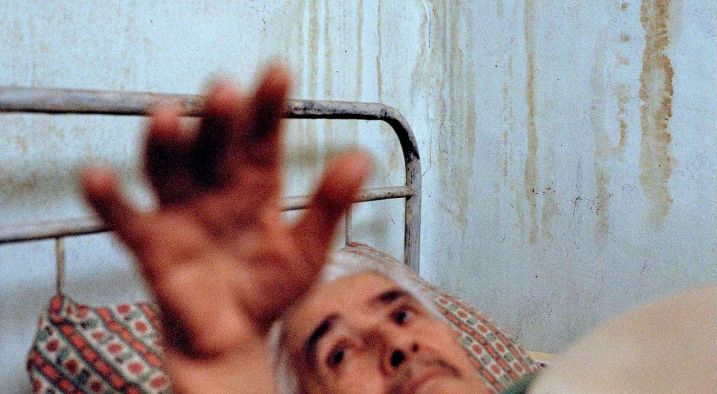

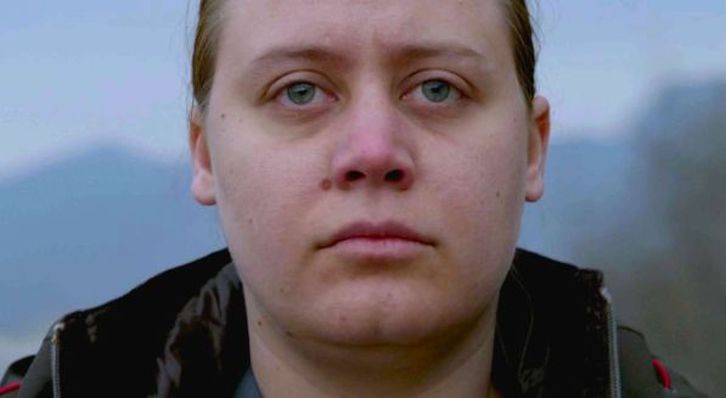
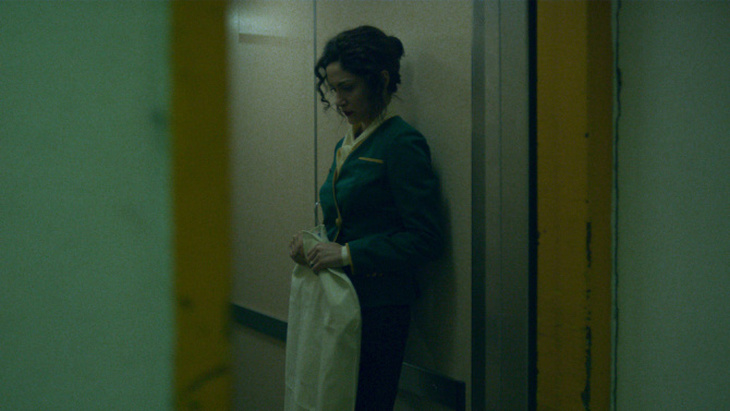
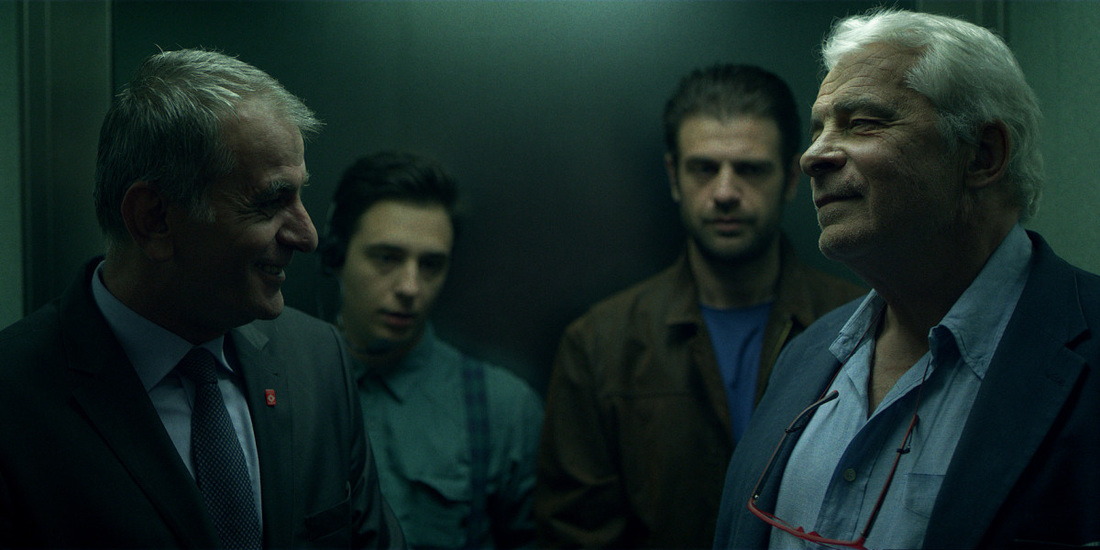
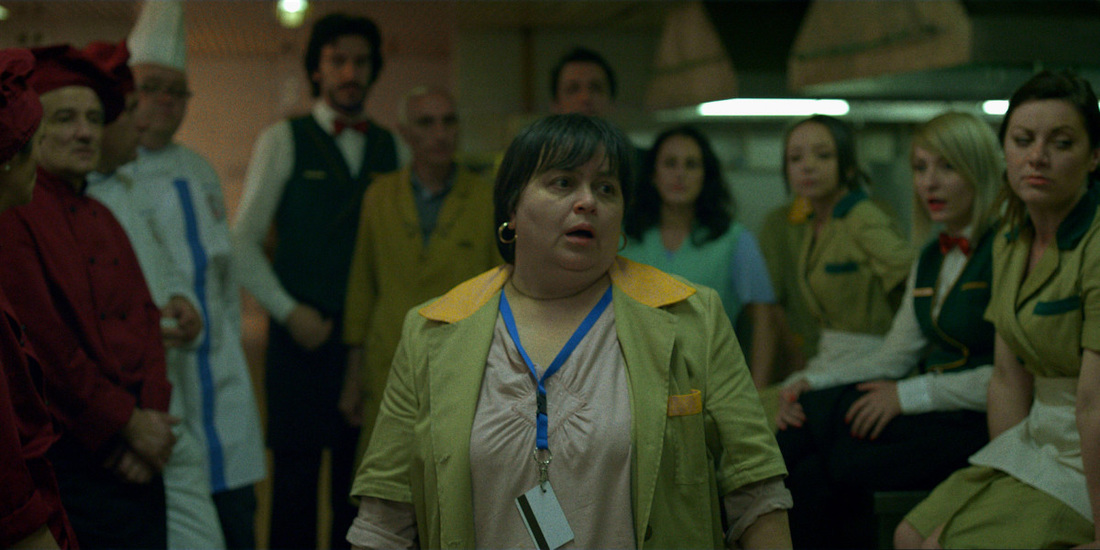
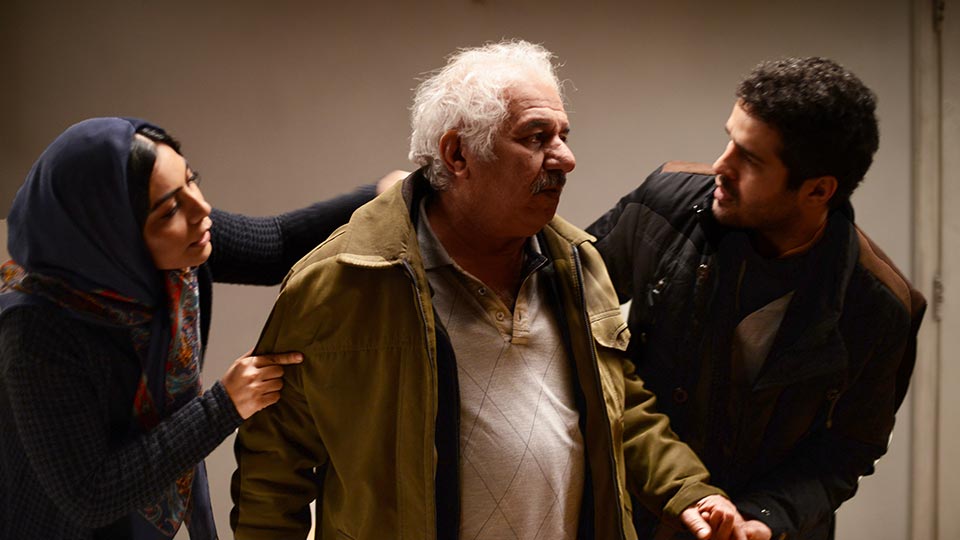
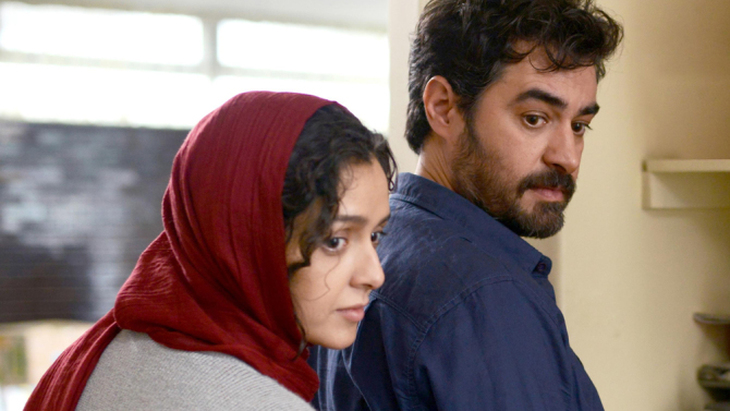
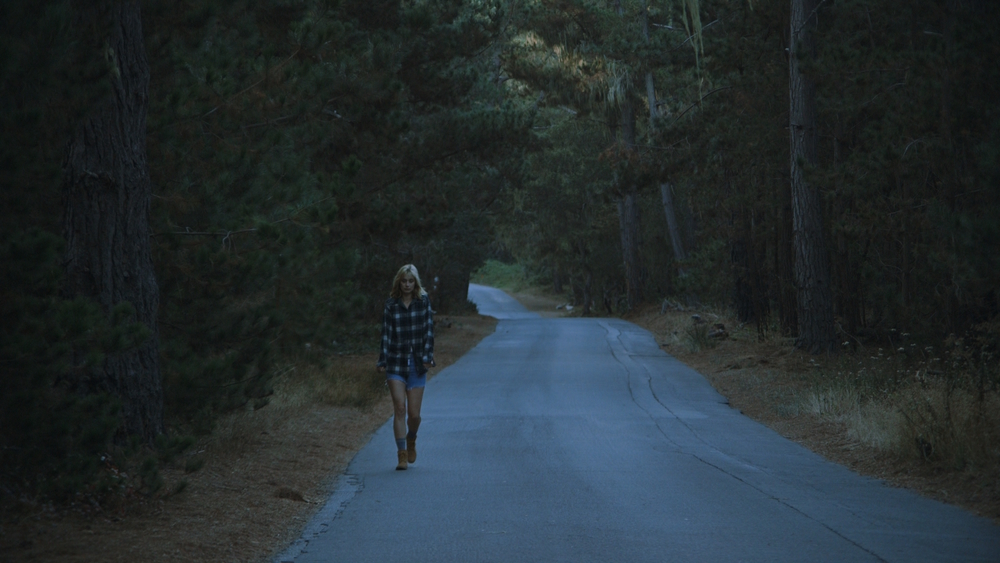

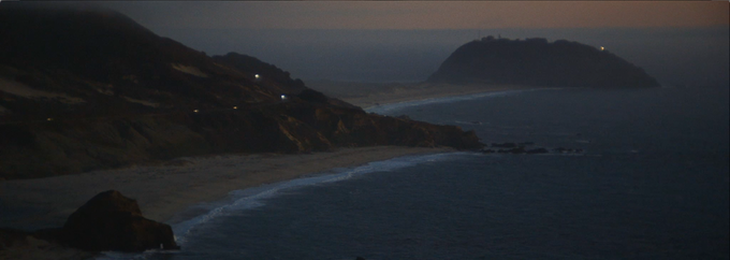

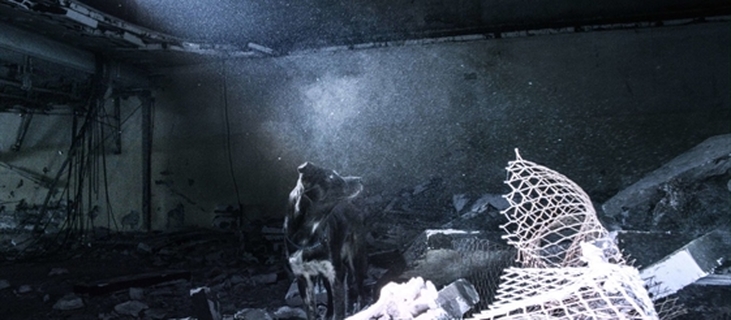
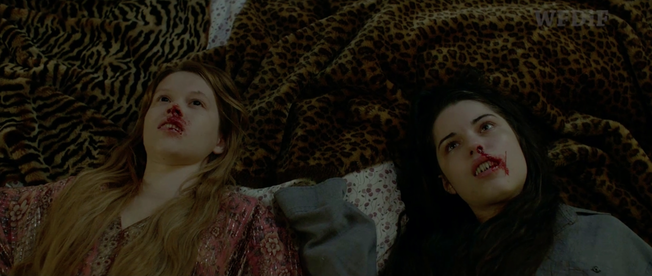
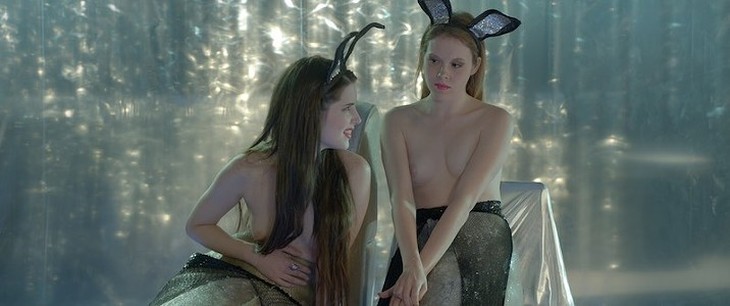
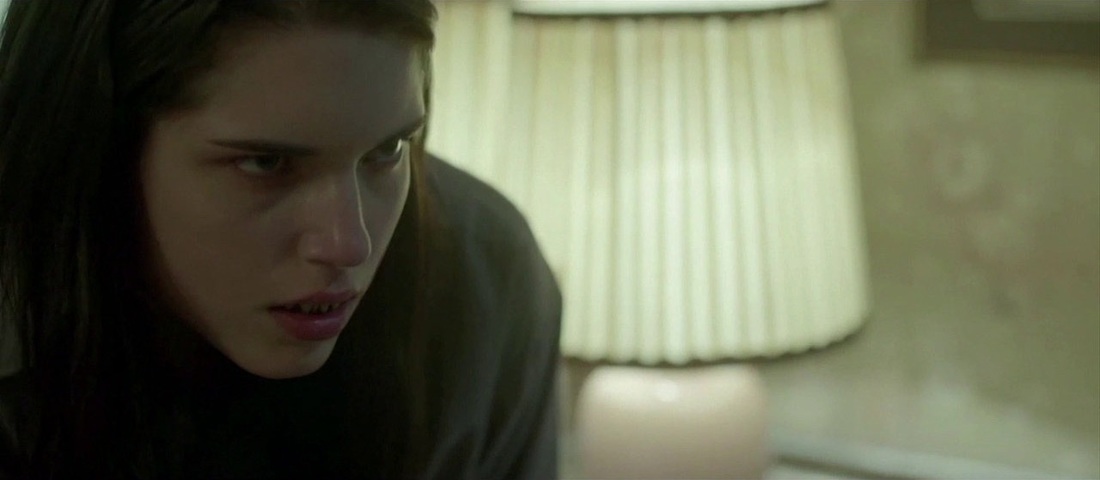
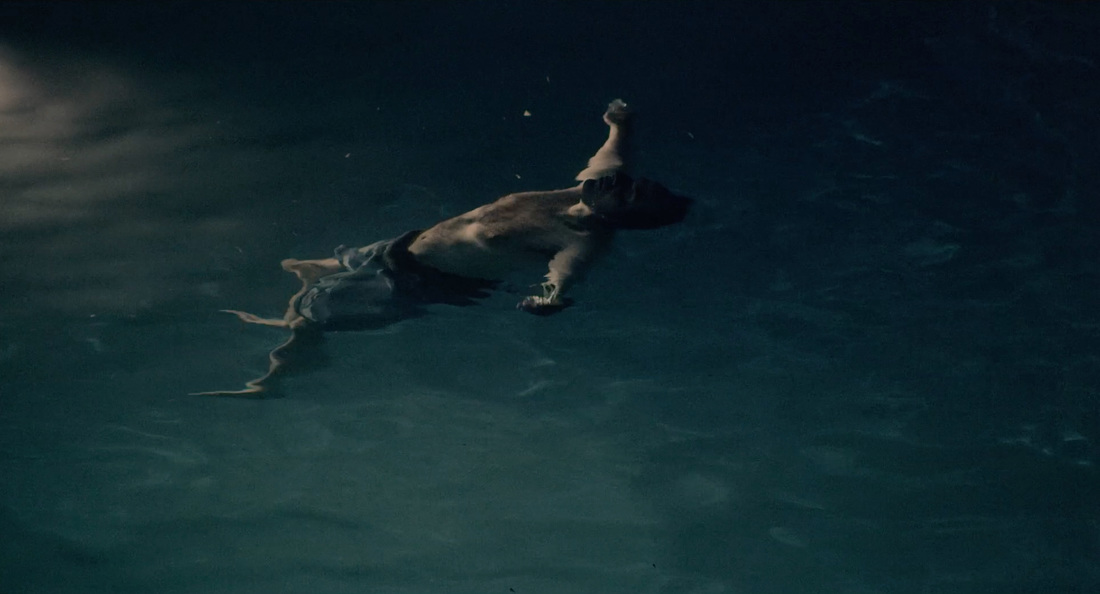
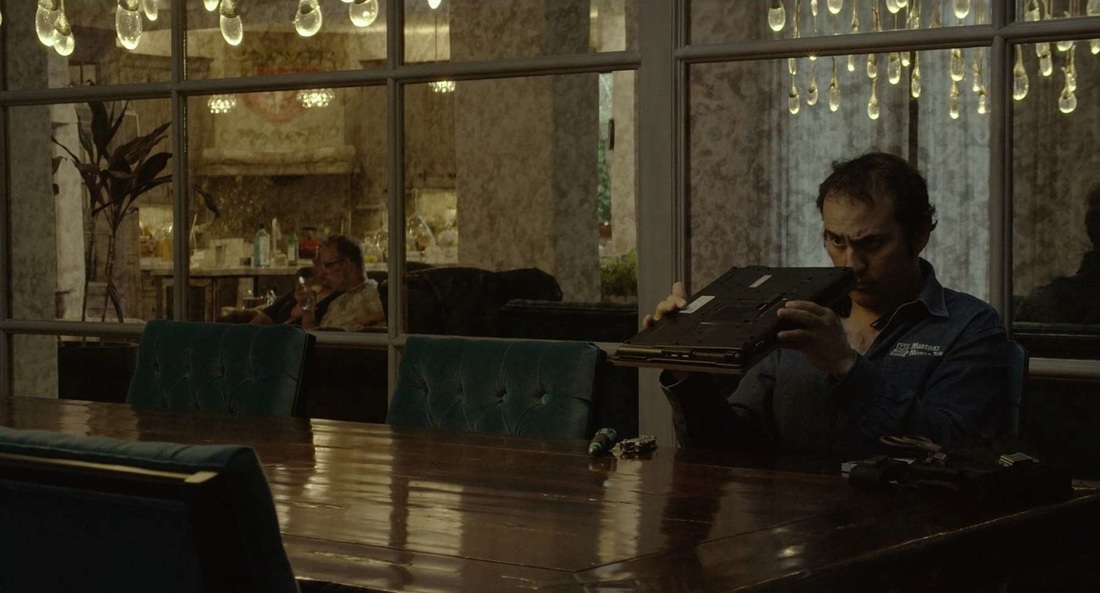
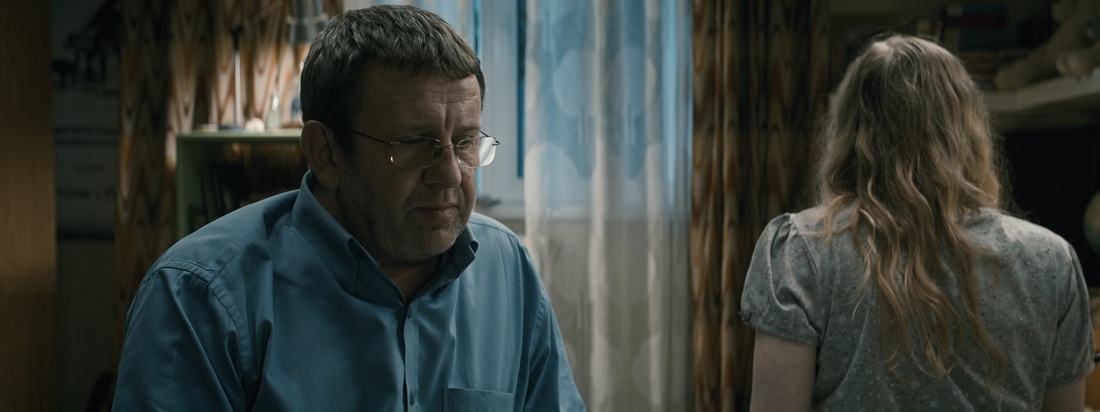
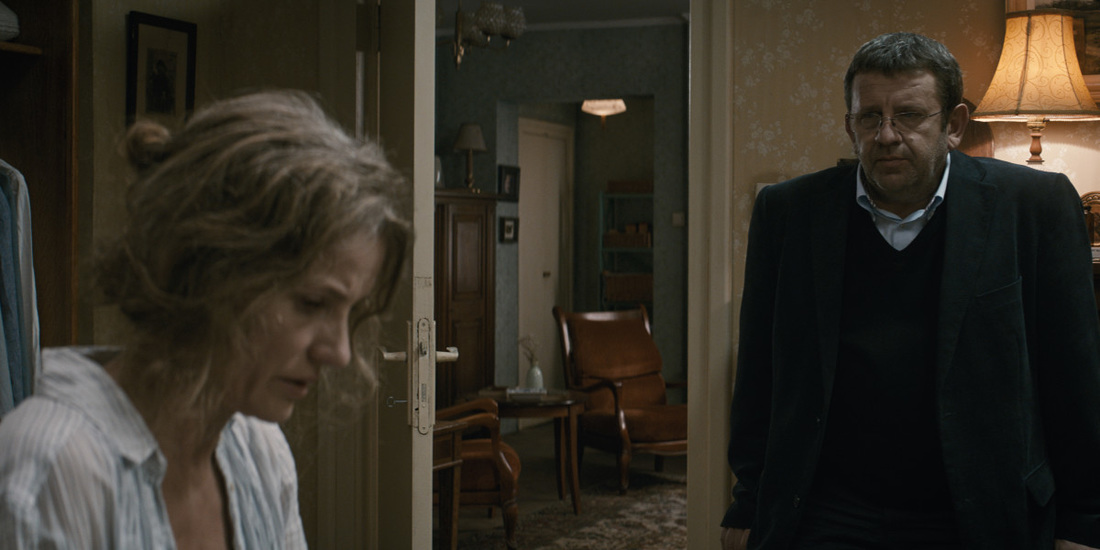
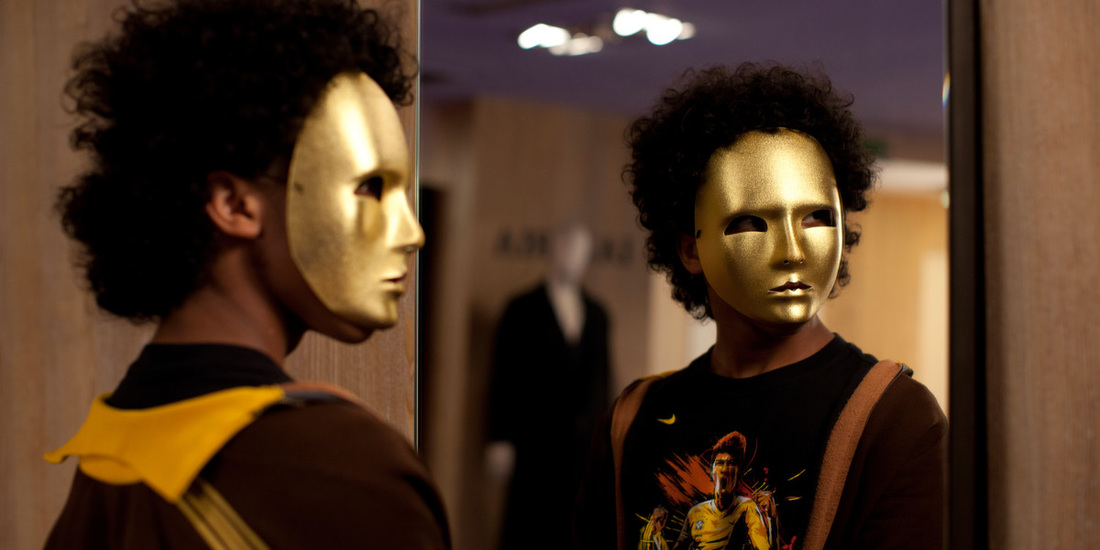



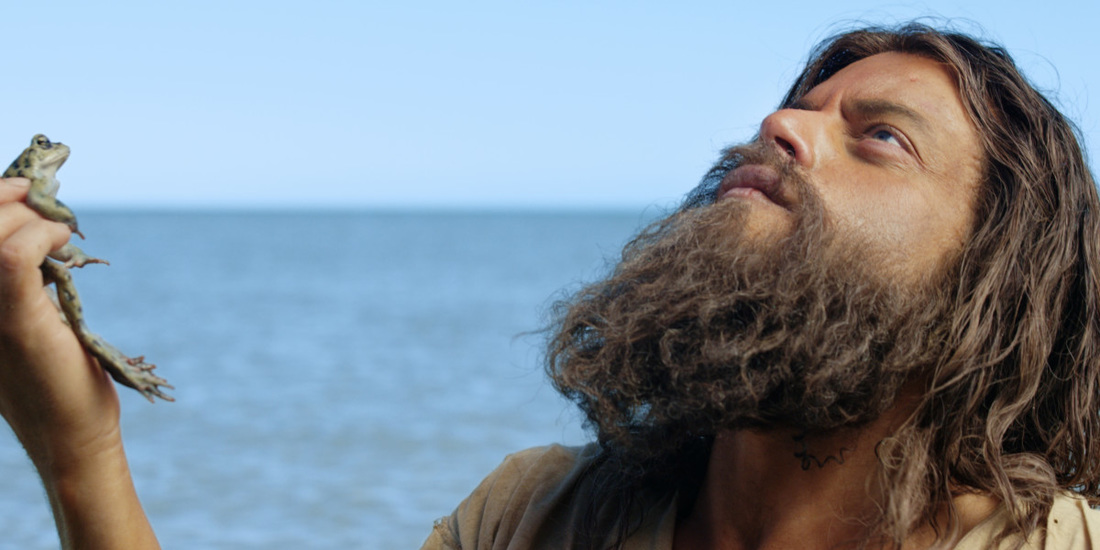

 RSS Feed
RSS Feed
